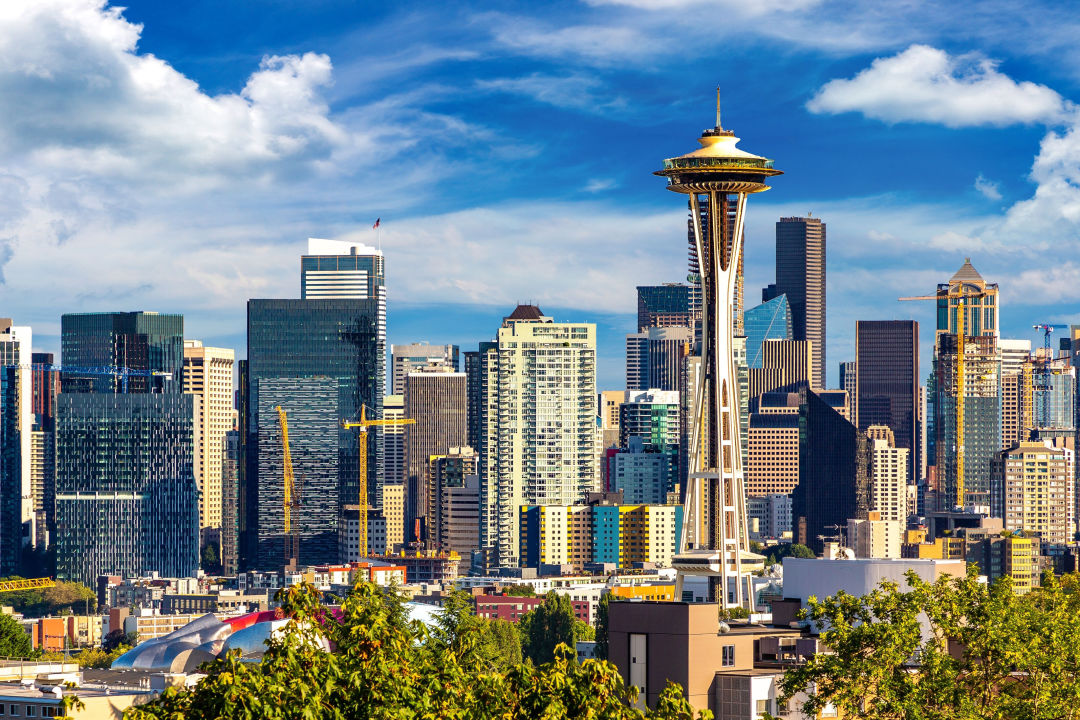Seattle’s Cannabis Culture: How the Industry Is Shaping the City’s Identity
The topic of this story was provided by our review partner, Originated Media; SagaCity Media has editorial oversight over specific content.

Image: Sergii-Figurnyi-Shutterstock
A decade after opening its first legal dispensaries, the Emerald City is becoming a hub of cannabis culture, with local entrepreneurs capitalizing on this burgeoning market, launching everything from artisanal cannabis products to educational events to innovative consumption lounges.
Cultural Integration
From art shows featuring cannabis-inspired works to music festivals that celebrate the plant, local artists, comedians, and musicians have found inspiration in the plant. Ganja Garden — an improv show where the performers are high and create spontaneous, hilarious scenes based on audience suggestions —is returning to Jet City Improv at the end of 2024. At Art Cannabis, a brand created in 2018, long-time cannabis business partners and art fanatics partnered with 18 artists, showcasing their work in over 40 stores with an estimated viewership of 24.5 million people.
One of the most notable cultural events in Seattle is Hempfest, the OG weed festival launched in 1991 that attracts thousands of cannabis enthusiasts, activists, and entrepreneurs. Following a COVID hiatus, the festival has announced its return, serving as a platform for discussions around legalization, social justice, and health benefits.
A Cannabis-Boosted Economy
According to the Marijuana Policy Project’s latest industry analysis, the legal cannabis market in Washington state brought in $1.86 billion in 2023, and is expected to grow another 13.6 percent from 2024 to 2030, with a substantial portion coming from Seattle. Washington’s cannabis taxes are among the highest in the nation, with a retail tax of 37 percent.
Since sales began in 2014, state reports show that over $4.1 billion has been generated in cannabis excise and sales taxes. For every $1 billion in revenue collected from the cannabis sales tax, nearly $600 million is funneled into public schools, early childhood education, and after-school programs; public health initiatives such as addiction treatment services, mental health programs, and community health outreach as well as funding for parks, public spaces, and community centers.
Social Dynamics and Stigmas
In recognition of the historical inequities surrounding cannabis prohibition, some of the tax revenue is also directed towards social equity initiatives focusing on supporting marginalized communities disproportionately affected by past drug policies. Many local activists are working to ensure everyone has access to the opportunities presented by the legal cannabis market. Initiatives aimed at promoting inclusivity and diversity in the cannabis industry are gaining traction, particularly programs that support minority-owned cannabis businesses.
A bill signed by Governor Jay Inslee’s desk this session, SB 5080, aims to increase racial diversity in the state’s licensed cannabis businesses — and to support the communities most harmed by past drug laws.
A Move to Schedule III
In May, the Justice Department moved to reclassify cannabis from Schedule I to Schedule III—a major shift of US drug policy. The proposed rule not only acknowledged the medical value of cannabis but also that it has less potential for abuse than other Schedule I drugs, like Heroin and LSD, opening the doors for further research.
Another significant impact of this reclassification is the potential change in tax policy for state-legal cannabis businesses. If implemented, these businesses would be able to claim federal tax deductions that were previously unavailable, lessening the vulnerability of these cash-based enterprises to criminal activities.
Related Content:
BRĒZ: Are They Among the Best THC Drinks?
Best THC Vape Pen: Top 5 Weed Pens for Relaxation and Stress Relief
The following link will take you to products related to this story that may be of interest. If you choose to purchase a product, we may receive an affiliate commission. seattlemet.com/advantage
